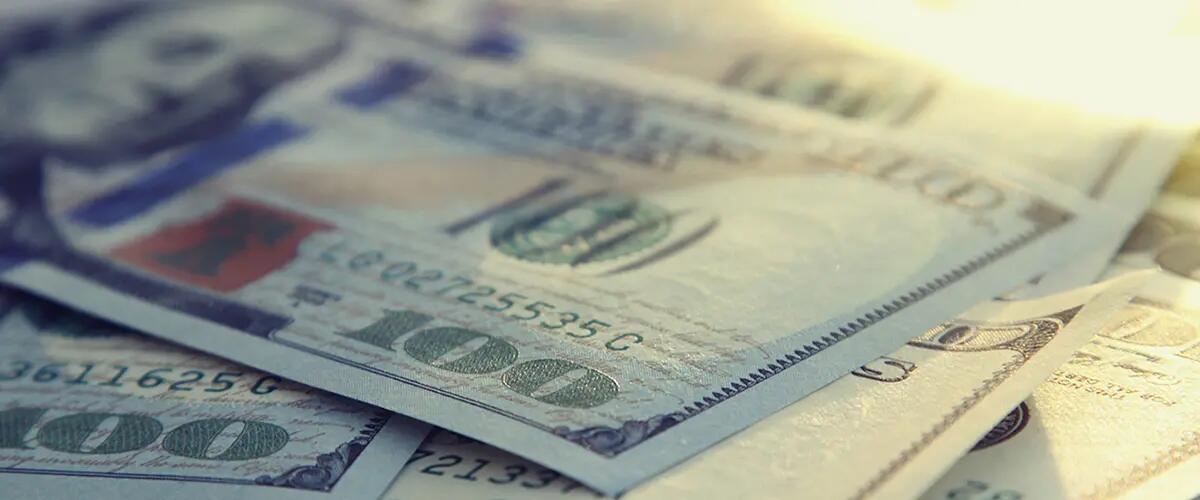
An anachronistic tax code is costing the U.S. Treasury $30 billion each year.
A tax reform proposal for the people
This opinion piece, which was co-written by Professor Jay Soled, originally appeared in The Hill.com, a website devoted to coverage of U.S. policy and politics.
What do the three wealthiest entrepreneurs in the United States — Bill Gates, Jeff Bezos, and Warren Buffett — have in common? Likely, not a single penny of income tax will be paid on their appreciated stock. Ever. And since this appreciation totals well in excess of $100 billion, the amount of foregone tax revenue would be enough, if President Trump and Congress so chose, to build at least one, if not two, walls along the Mexican border.
How is this possible? An anachronistic Tax Code section, commonly known as the "step-up in basis" rule, provides that an asset’s tax basis (a.k.a. its cost) is made equal to its fair market value at the owner’s death. After a basis step-up, an asset can be immediately sold by a taxpayer’s heirs without triggering income tax on any capital gains from the sale proceeds.
To illustrate how the step-up in basis rule operates, consider Bill Gates, who started Microsoft decades ago with no money, but with lots of passion and ingenuity. For argument’s sake, let’s assume that his Microsoft shares are now worth $50 billion. As long as he embraces a hold-until-death strategy, his heirs will be accorded a $50 billion tax basis in their inherited shares, insulating all prior appreciation from income tax.
This tax advantage is not limited to the three wealthiest Americans: technically, any taxpayer can take advantage of the step-up in basis rule. However, since stock and other appreciated asset ownership is largely concentrated among the nation's wealthy, the benefit of this rule inures predominantly to the well-to-do.
The revenue loss from this arcane tax rule is enormous. The Joint Committee on Taxation recently reported that this gaping income tax loophole costs the Treasury over $30 billion annually, and this revenue loss is projected to grow.
Because the rule constitutes a significant departure from the principle that all income should be taxed at least once, legislators have twice tried to eliminate it. In 1976, and again in 2001, Congress enacted a “carryover tax basis” rule, requiring heirs to retain the decedent’s tax basis in the assets they received. That means Gates’ heirs would have essentially a $0 tax basis in the Microsoft stock they inherit.
In both cases the legislation was never made permanent, in large part because accurate tax basis identification appeared too problematic. Put bluntly, who knew what Aunt Tillie paid for her pearl necklace a half a century ago? Absent this critical information, a universal carryover basis rule seemed unworkable.
But over the last few decades, the world has changed dramatically. Technological advances have made tax basis identification easy, particularly with respect to marketable securities. In 2008, Congress capitalized upon these technological advances when it enacted legislation that now requires third-party brokerage firms to track the tax basis that investors have in their marketable securities, such as shares in stock and notes, bonds, or other evidence of indebtedness. Now, virtually everyone knows the tax basis they have in this broad spectrum of their investment portfolio.

With this knowledge readily at hand, Congress should demand that a carryover tax basis rule apply, but limited to marketable securities. When taxpayers pass away, the tax bases they had in their marketable securities would thus carry over to their heirs. Heirs who subsequently sold their inherited securities would then pay tax on all of the capital gains that accrued during the deceased taxpayer’s lifetime.
This reform would have three major advantages. First, because tax basis information is now readily at every investor’s fingertips, a carryover tax basis rule would be eminently feasible. Second, by preserving the gain that accrues when wealthy taxpayers hold securities rather than exempting it from taxation, the rule would make the tax code considerably more equitable. Third, a carryover tax basis rule would raise considerable amounts of revenue — without raising taxes — so it should be politically viable. In sum, what fair-minded person would oppose a plain-vanilla rule requiring at least one level of income tax on the sale of securities?
Nevertheless, whether President Trump would support carryover tax basis legislation limited to marketable securities is unclear. In other words, is he the populist that he professes to be or does he simply like the label? It is impossible to know, but how he responds to a call to change the step-up in basis rule will be revealing. After all, it is hard to imagine that a truly populist president would tolerate a rule that allows the country’s wealthiest entrepreneurs (and other well-heeled taxpayers) to escape paying any income tax on their capital investments.
About the authors: Jay Soled is a tax professor and director of the Master of Accountancy in Taxation Program at Rutgers Business School. Kathleen DeLaney Thomas is a law professor and director of the University of North Carolina School of Law Tax Institute. James Alm is a professor and chair of economics at Tulane University.
Photo credit: Sergei Aleshin/istock/Thinkstock
Press: For all media inquiries see our Media Kit


